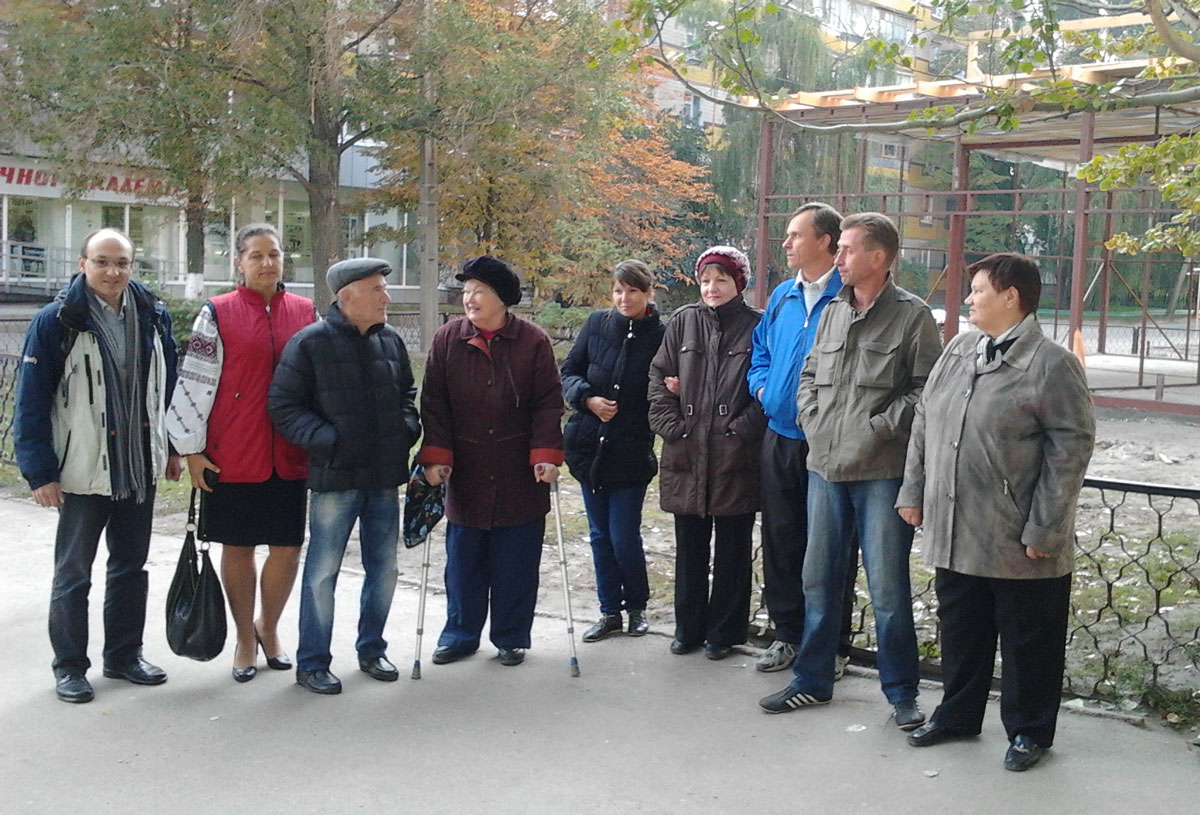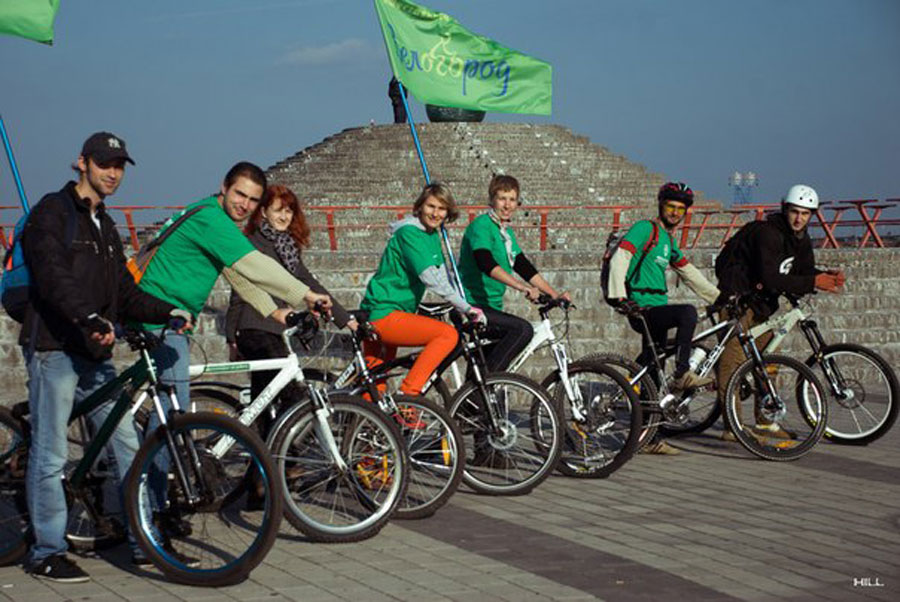David Heller, from Friends of the Earth Europe, recently visited Dnipropetrovsk in Ukraine. He met with Friends of the Earth Ukraine to discuss their ongoing work and the broader struggle for sustainable development within the country
The Ukrainian city of Dnipropetrovsk stands on the banks of the mighty Dnipro river. The city is also home to Friends of the Earth Ukraine (known as Zelenyi Svit), which was registered as the first NGO in the country, and previously operated unofficially under the totalitarian communist regime. More than 20 years later, the organization is still leading the public and political debate – and is at forefront of the action – regarding sustainable development in Ukraine.
It is ironic that Friends of the Earth Ukraine finds it home on the banks the River Dnipro, itself an example of unsustainable development. In the middle of the last century, the river was dammed – raising the water level and the width of the river in order to allow the passage of larger ships and to provide hydro-electric power. This led to damage to important ecosystems, and placed the drinking water for 30 million people under threat of pollution.
The proposal to remove the dams from the river, and allow it to return to its former size and diversity, was one of the issues discussed at the recent conference hosted by Friends of the Earth Ukraine. The conference “Problems of Nature Management, Sustainable Development and the Technological safety of the regions” was organized together with an Institute of the Ukrainian National Academy of Sciences. It brought together scientists and activists from across Ukraine, and international guest speakers. In parallel, Friends of the Earth Ukraine organized a “Green Forum” to discuss issues related to the main campaigns of the organization with supporters and interested members of the public.
Cycling infrastructure
One of the most active struggles for sustainable development in the city, presented at the Green Forum, relates directly to the main bridge across the Dnipro River. For car drivers, this 2.5km long bridge links the residential areas of Dnipropetrovsk on the left bank of the river with their workplaces on the right bank. For the few cyclists who are brave enough to risk the daily commute, the bridge represents the most dangerous obstacle on this journey. With no cycle lane, cyclists are forced to compete for road space with cars, buses and trucks. The bridge has therefore become a symbol of a new struggle for sustainable development in the city. Friends of the Earth Ukraine is working alongside cyclist organizations to demand the widening of the bridge to allow a safe cycle lane and pedestrian path across the bridge. This is part of a wider plan for cycling in the city which has been launched by the organization.
Illegal developments
Elsewhere in the city, residents of Prospect Geroyiv are also struggling for environmental justice. The residents were shocked to see the only area of green space in their neighbourhood had been “land grabbed”, and the trees cut down. Residents had planted trees on the land more than 20 years ago, and had used it for relaxation, and as a route to their homes free from traffic. The city council had leased the land to an unknown individual, who since then has started to illegally construct a building on the green space.
The council has not organized any kind of public hearing or consultation on the issue, and has so far refused to reveal to whom the land has been leased. As well as damaging the green space the closure of the green space is forcing residents to walk on the street on a very narrow footpath. A building on the site will close an important air corridor through the neighbourhood, increasing pollution from a nearby heating station.
Residents have been supported by Friends of the Earth Ukraine in their active opposition to the project. This has included demonstrations and public meetings of up to 100 local residents on the land. They have also written to all levels of government from the local to the national, and to the relevant legal, building and environmental officials, but so far have not received a satisfactory response. This is a breach of the constitutional right of access to information. Inspiration comes from the successful struggle in 2008 and 2009 against the illegal development of the Slavy Boulevard in the city, which was led by Friends of the Earth Ukraine and local residents.

Kim Shulman is a resident of Prospect Geroyiv, and one of the speakers at the session of the Green Forum on public participation. He said: “This is not a unique situation. It is a symptom of what is taking place in every city and every village across Ukraine. The combination of business, government, police and corrupt authorities are destroying everything in their path. If the authorities don’t allow consultation on these plans, this is a violation of human rights, and against the constitution.“
Friends of the Earth Ukraine is supporting many such groups across the city – and in rural and urban areas across the country – who are struggling against land grabbing, and for sustainable development.





